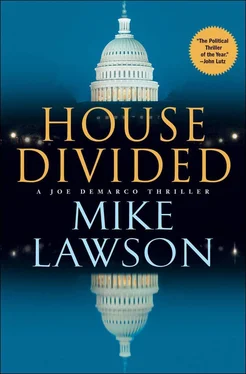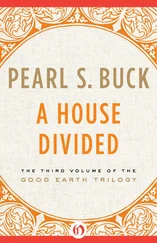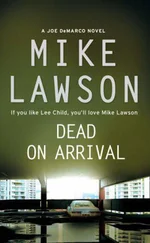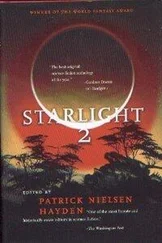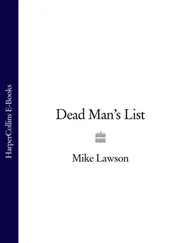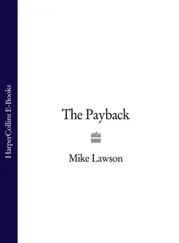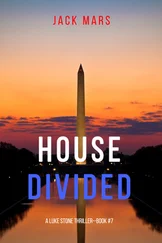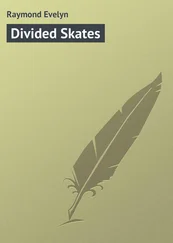Mike Lawson - House Divided
Здесь есть возможность читать онлайн «Mike Lawson - House Divided» весь текст электронной книги совершенно бесплатно (целиком полную версию без сокращений). В некоторых случаях можно слушать аудио, скачать через торрент в формате fb2 и присутствует краткое содержание. Жанр: Триллер, на английском языке. Описание произведения, (предисловие) а так же отзывы посетителей доступны на портале библиотеки ЛибКат.
- Название:House Divided
- Автор:
- Жанр:
- Год:неизвестен
- ISBN:нет данных
- Рейтинг книги:3 / 5. Голосов: 1
-
Избранное:Добавить в избранное
- Отзывы:
-
Ваша оценка:
- 60
- 1
- 2
- 3
- 4
- 5
House Divided: краткое содержание, описание и аннотация
Предлагаем к чтению аннотацию, описание, краткое содержание или предисловие (зависит от того, что написал сам автор книги «House Divided»). Если вы не нашли необходимую информацию о книге — напишите в комментариях, мы постараемся отыскать её.
House Divided — читать онлайн бесплатно полную книгу (весь текст) целиком
Ниже представлен текст книги, разбитый по страницам. Система сохранения места последней прочитанной страницы, позволяет с удобством читать онлайн бесплатно книгу «House Divided», без необходимости каждый раз заново искать на чём Вы остановились. Поставьте закладку, и сможете в любой момент перейти на страницу, на которой закончили чтение.
Интервал:
Закладка:
The prosecutor did have in his possession the recording DeMarco had given to Thomas Antonelli, the recording in which Breed admitted to carrying out thirteen assassinations for Charles Bradford. The prosecutor was sure that Breed’s admissions on the recording, combined with DeMarco’s testimony, would be sufficient to convince any reasonable jury of Charles Bradford’s guilt. When he told Bradford this, Bradford’s response had been: So try me.
Bradford knew the last thing that the president wanted was a public trial or a court-martial. Bradford also knew that when the public heard about who Breed had assassinated-mostly people with known links to terrorists-a large segment of the population would consider Charles Bradford a hero for what he had allegedly done. The rest of the world would, of course, have a different view of his actions-and it was really the rest of the world the president was trying to keep in the dark.
The president considered convening a secret military tribunal; after Bradford was found guilty he would be locked away in a maximum security prison in total isolation. He was afraid if he did this, however, someone on the tribunal, someone sympathetic to Bradford, would talk to the press. Someone always talked to the press. He also considered simply having Bradford killed and wondered if he could do as King Henry II had done with Thomas A Becket- Will no one rid me of this troublesome priest? — and hope that someone on his staff would show some damn initiative for a change. In the end, though, he just couldn’t bring himself to do it. He wanted whatever he did with Charles Bradford to have at least the appearance of being legal.
While the president was deliberating, Chief Justice Thomas Antonelli was leaping up and down in his black robes, demanding that the president do something, and do something soon! Antonelli had knowledge that crimes had been committed, and this knowledge weighed heavily upon his conscience. And he pointed out that Bradford hadn’t just assassinated foreigners, he’d also killed a number of U.S. citizens, including Paul Russo and a member of the press.
Thomas Antonelli didn’t see the big picture either.
Then the president’s devious, brilliant, special prosecutor found a solution.
The right of habeas corpus-basically, the constitutional right to be tried before one is imprisoned-had been overturned several times by past presidents via executive order. Lincoln issued an executive order to suspend habeas corpus during the Civil War. Japanese Americans were interned during World War II because of an executive order issued by Roosevelt. In more recent times, executive orders had been issued to suspend habeas corpus in the case of folks like the terrorists in Guantanamo.
Well, okay, the president said. If it was good enough for Lincoln and Roosevelt, it was good enough for him, so he had his special prosecutor write up an executive order saying, in flowery legal language peppered with historical precedents, that it was okay for him to toss a guy into a cell without a trial when the guy had committed extraordinary crimes and when public disclosure of those crimes could do grave harm to the United States. The president figured he might be able to convince Justice Antonelli to play along if he promised to limit his executive order to Charles Bradford and shredded it immediately thereafter. If Antonelli didn’t play along, at some point he would have to admit that he had remained silent while the president struggled with the Bradford dilemma.
Yes, the president liked the idea. There were still a few details to be ironed out, but the basic concept was solid. He’d sign the executive order and then Bradford would be whisked off to a cell by a few extremely tight-lipped folks and be kept in isolation until he died. Exactly where the cell would be and who would do the whisking were a couple of those details that needed to be nailed down. To explain why Bradford had suddenly disappeared, he would appear to die while piloting the Cessna he owned. But then-just when the president was on the cusp of discussing his plan with Justice Antonelli-something happened, something that made Dillon Crane, a lifelong agnostic, reconsider his views regarding the existence of a Divine Being: Charles Bradford was diagnosed with pancreatic cancer. He would be dead in less than a year.
The president summoned Bradford to the Oval Office, showed him the executive order, and gave Bradford a choice: resign immediately and agree to keep his mouth shut or he would go directly from the White House to a special facility in the Blue Ridge Mountains the CIA used for detaining certain folk. Bradford, still in shock from the news of his illness and impending death, took the deal. After he resigned, the president took the precaution of assigning people to monitor all of Bradford’s communications to make sure he didn’t e-mail his memoirs to a publisher; in a twist of irony, the organization assigned to monitor Bradford was the NSA.
So in the end, except for the fact that Dillon now resided behind bars in White Deer, Pennsylvania, things worked out. The men responsible for the deaths of Paul Russo, Robert Hansen, and several others were all dead or soon would be, and the world at large would never know what Charles Bradford had done.
Dillon’s reverie was interrupted by George Aguilera. “Dillon, for God’s sake, will you please settle this? How much did we agree the damn oysters are worth?”
Dillon sighed, opened his eyes, and stood up. “Would you gentlemen please excuse me? I’m not feeling very well.”
Actually, he’d never felt better in his life. That was one of the positive things about a prison environment: it was extraordinarily healthy. He ate a balanced diet, slept eight hours a night, exercised regularly, and ingested no alcohol. He’d even taken up yoga and was more flexible than he’d been as a teenager.
He walked out into the exercise yard, took a seat on a bench, turned his face toward the sun, closed his eyes-and recommenced designing the villa. He’d already designed the exterior, the great room, the master bedroom, and was now working on the kitchen. He’d committed none of his plans to paper, preferring to keep it all in his head as a mental exercise. Soon, however, he would actually begin constructing the villa on land he’d already purchased in Italy on a cliff overlooking the Mediterranean.
He would be released as soon as Bradford died, although the government hadn’t agreed to this yet. He hadn’t been convicted of a crime; he had been jailed for contempt, for refusing to tell the special prosecutor who had helped him at the NSA. The reality was, however, that, just like Charles Bradford, no one was quite sure what to do with him, and he’d made it clear to the prosecutor-and the president-that to do anything truly harmful could have grave consequences.
Dillon just knew too much. He knew too much about too many operations and about too many people. He and Claire had acquired enough information since 2002 to blackmail a large number of very influential politicians in Washington-Justice Thomas Antonelli and the president’s special prosecutor, unfortunately, being exceptions. He also had in his possession, or so he told the prosecutor, a recording of the president having a very interesting phone conversation with a young woman in Miami. He pointed out to the president’s lawyer that with all the other problems the president currently had, he certainly didn’t need to go down the Bill Clinton trail.
But when Bradford died, he would ask, quite politely, to be released. After Bradford was dead-and after the new NSA director had completed his review to verify that the NSA was squeaky clean-there wasn’t much point in keeping Dillon in prison and risking his talking about what he knew. So he’d wait, and after Bradford’s funeral he would remind the special prosecutor it would be in everyone’s best interest if he were to be given a very quiet, under-the-table, presidential pardon for any crimes he might have committed and allowed simply to retire to Italy.
Читать дальшеИнтервал:
Закладка:
Похожие книги на «House Divided»
Представляем Вашему вниманию похожие книги на «House Divided» списком для выбора. Мы отобрали схожую по названию и смыслу литературу в надежде предоставить читателям больше вариантов отыскать новые, интересные, ещё непрочитанные произведения.
Обсуждение, отзывы о книге «House Divided» и просто собственные мнения читателей. Оставьте ваши комментарии, напишите, что Вы думаете о произведении, его смысле или главных героях. Укажите что конкретно понравилось, а что нет, и почему Вы так считаете.
